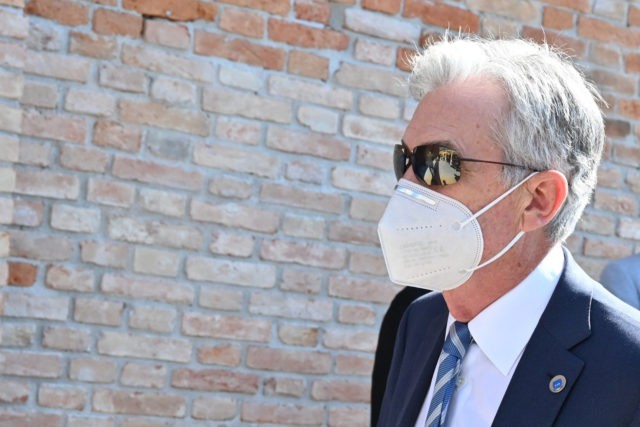Federal Reserve Chair Jerome Powell struck a stance of cool defiance when it comes to concerns over inflation surging.
Powell said Wednesday that he expects inflation, which has been rising by much more than expected for the past four months, “will likely remain elevated in coming months” before “moderating.”
This is an indication that the Fed is not ready to change course from its declared plan to keep rates low for an extended period of time even though growth and inflation are running hotter than expected.
In testimony before the House Financial Services Committee, Powell faced many questions, particularly Republicans, about whether the Fed was being cavalier in ignoring higher than expected inflation. Democrats too challenged Powell to better explain why he is not worried about escalating prices, especially in the housing market, where escalating prices have put homes out of reach for lower income Americans in many areas.
“How much longer can we have this kind of sustained inflation before you become nervous?” Rep. Frank Lucas (R-OK) asked, pointing out that the Fed had to raise rates dramatically and induce a recession to reduce inflation in the early 1980s.
“If we see that inflation is moving up or on a path to be well above our goals or the risk of sending on us on a path of high inflation, then we will use our tools to guide it back down. So in the end it will be transitory,” Powell said. “People need to have faith in the central bank that we will do that.”
Powell reiterated his long-held view that high inflation readings over the past several months have been driven largely by temporary factors, notably supply shortages, and rising consumer demand as pandemic-related business restrictions are lifted.
Once such factors normalize, Powell said, inflation should ease. Yet the Fed chair did not repeat in his testimony an assertion he made three weeks ago before another House panel, that inflation would “drop back” to the Fed’s target of 2 percent.
The Fed has said it will keep its benchmark short-term rate pegged near zero until it believes maximum employment has been reached and annual inflation moderately exceeds 2 percent for some time. The central bank’s policymakers have said they are prepared to accept inflation above its target to make up for years of inflation below 2 percent.
The Fed chair also said Wednesday that the economy is “still a ways off” from making the “substantial further progress” that the policymakers want to see before they will begin reducing their $120 billion in monthly bond purchases. Those purchases are intended to keep long-term borrowing rates low to encourage borrowing and spending.
Powell added that the Fed might adjust its policies if inflation, or the public’s expectations for inflation, “were moving materially and persistently beyond levels consistent with our goal.” Americans’ expectations for inflation are important because they can become self-fulfilling. If consumers foresee higher prices, they typically demand higher pay in response. Businesses may then further raise prices to compensate for the increased wages.
The chairman is testifying to the House committee as part of his twice-a-year monetary policy report to Congress. On Thursday, he will testify to the Senate Banking Committee.
Powell’s remarks coincided with a government report Wednesday that showed that the producer price index, which measures prices paid to U.S. businesses selling goods and services, jumped 7.3 percent in June from a year earlier, the fastest 12-month gain on records dating to 2010.
On Tuesday, in another sign of intensified inflation pressures, the government said that prices paid by U.S. consumers surged in June by the most in 13 years. It was the third straight month inflation has jumped. Excluding volatile food and energy costs, so-called core inflation rose 4.5 percent in June, the fastest pace since November 1991.
Much of the consumer price gain was driven by categories that reflect the reopening of the economy and related supply shortages. Used car price increases accounted for about one-third of the jump. Prices for hotel rooms, airline tickets, and car rentals also rose substantially.
“The fact that the recent run-up in inflation has been dominated by a few categories should give the Fed leadership continued confidence in their view that it is mostly a transitory increase, a view which the market apparently shares,” Michael Feroli, an economist at JPMorgan Chase, said this week.
But some increases could persist. Restaurant prices rose 0.7 percent in June, the largest monthly rise since 1981, and have increased 4.2 percent compared with a year ago. Those price increases likely are intended to offset higher wage and food costs as restaurants scramble to fill jobs.
In his testimony, Powell was upbeat about the economy, with growth on track “to post its fastest rate of increase in decades.” He said hiring has been “robust” but noted there “is still a long way to go,” with the unemployment rate elevated at 5.9 percent.
At their most recent meeting last month, Fed officials forecast that they may raise their benchmark short-term rate twice by the end of 2023, an earlier time frame than they had previously signaled.

COMMENTS
Please let us know if you're having issues with commenting.